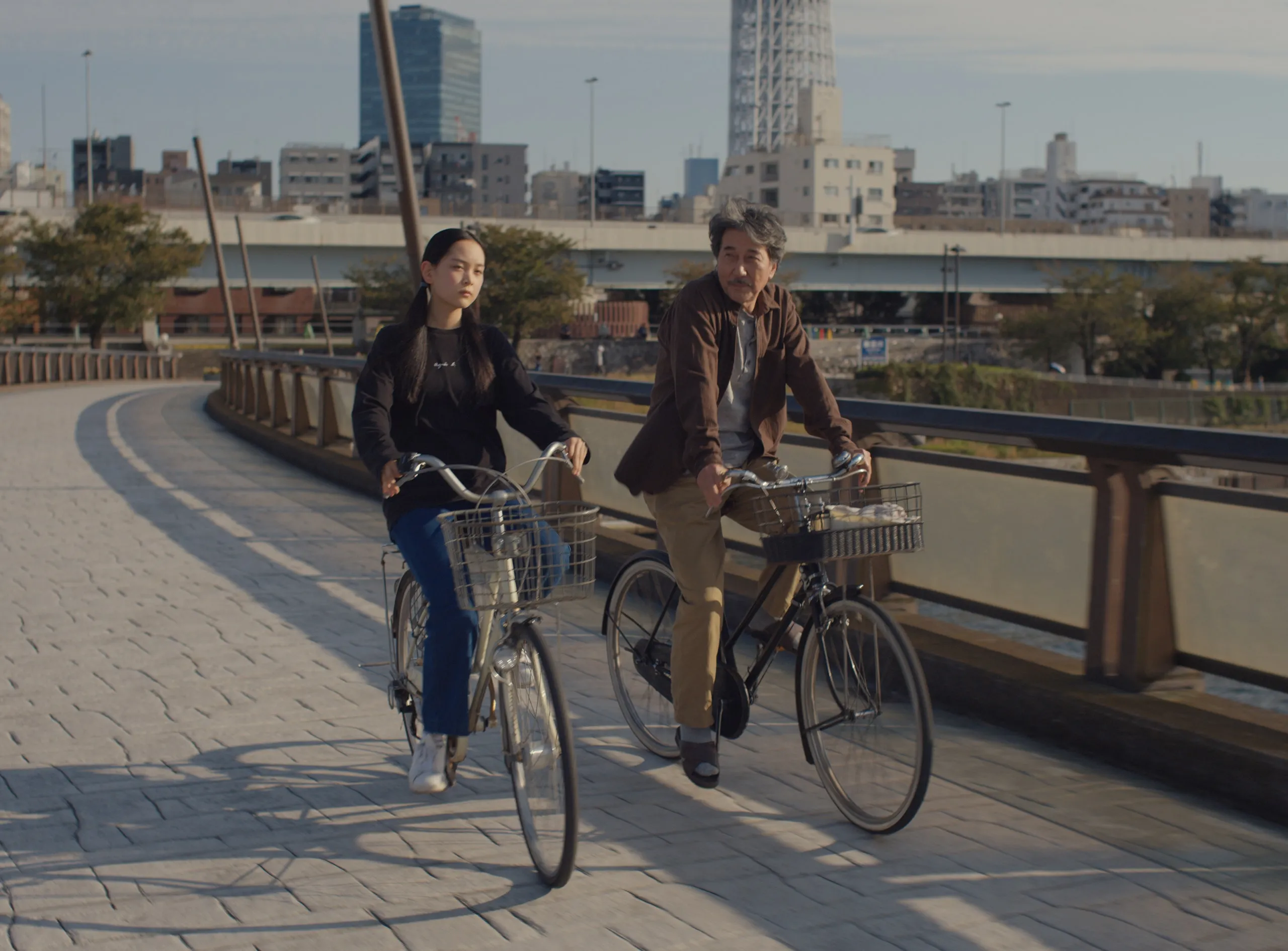
Film Review: Perfect Days
Film Reviews
Perfect Days
Director: Wim Wenders
Master Mind, Wenders Images
In Theaters: 02.07
A walk after rainfall. A long drive home. A good book. A job well done. Wim Wenders (Paris, Texas) gives all of these ordinary pleasures their due diligence in his latest narrative feature, Perfect Days. What could easily feel repetitive and dull is made to feel intricate and special through Wenders’ aptitude for simple but emotional storytelling, brought to life by Koji Yakusho’s (Shall We Dance?, 13 Assassins) fully involved performance.
Yakusho plays Hirayama, a janitor for Tokyo’s Toilet Project, a real public works effort with the goal of installing functional, and beautiful public restrooms. His daily routine is nothing out of the ordinary, with him waking up, watering his collection of tree saplings and setting out to keep the city’s best-looking bathrooms looking their best. He attentively leaves each one spotless, taking in the ambience of Shibuya as he goes. As the days roll by, he is interrupted by his frantic coworker and a surprise visit from his niece, among others who upset his daily routine.
In the best way possible, it’s as if Perfect Days borrows some of the philosophy of Amelie and recontextualizes it for the modern bachelor. Both films celebrate the little things that ease the pain of existence, but where Jeunet’s film urges the viewer to break away from monotony and create their own adventures, Wenders and co-writer Takuma Takashi implore you to cherish the peace within it. While Hirayama is at times literally dragged away from his daily rituals, he still finds pleasure in sharing them with other people. Be it through a shared love of cassette tapes, novels, trees or shadows. For better or for worse, the film is begging you to slow down.
As I said before, this film is intentionally anti-fast-paced. Although it’s pleasant and stimulating enough, the pacing does feel awkward at times, with it tricking you into thinking it’s finished throughout. While I can appreciate a departure from the typical motion picture narrative formula, the chain of events within the film feel somewhat disconnected. Things seem to pop up out of nowhere and as a result, the pay-off isn’t as rewarding. While this is definitely true to life in a lot of ways, Perfect Days stutters in some spots rather than flows. I’m not asking for conclusiveness in a film like this, though I would have liked to see more interconnectivity between plot points.
Visually, the film exudes the same thematic humility. Cinematographer Franz Lustig’s incorporation of hand-held close ups are reminiscent of a student film—Which is not to say they feel unpolished in some way, but more so that they have the same micro-budget charm. Soft, natural lighting breathes realism into each 1:33:1 frame, an unusual but intimate choice. For me, the linear and industrial cityscapes called back to those of Oslo seen in Joachim Trier’s Norwegian drama, The Worst Person in The World. As a whole, Wenders and Takashi cite Yasujiro Ozu’s filmography as a guiding inspiration, which is easily felt during the film’s two-hour and four minute run time.
Meticulously shot and written, Perfect Days is, in its entirety, a tribute to life at large and shines a light on the smaller passions that we exist for. Hirayama doesn’t go on a magical journey to escape from or submit to the malaise of his career, rather, he indulges in the modesty of it, and slowly breaks out of his shell through doing so. In a culture where it can feel like we’re constantly being told to aspire to the highest level and chase after the extraordinary, Perfect Days is in many ways refreshing, encouraging you to let the minuscule beauties of our routines linger and prevail. Wonderful to watch, if a bit inconsistent, Perfect Days has more or less proved that slow and steady does in fact win the race, at least this time. –Becca Ortmann
Read More From the Bounty of Becca’s Writing:
Weston Razooli Found Magic in the Uintahs
“You Can’t Really Plan for an Oscar”: A Chat With Hubbel Palmer
